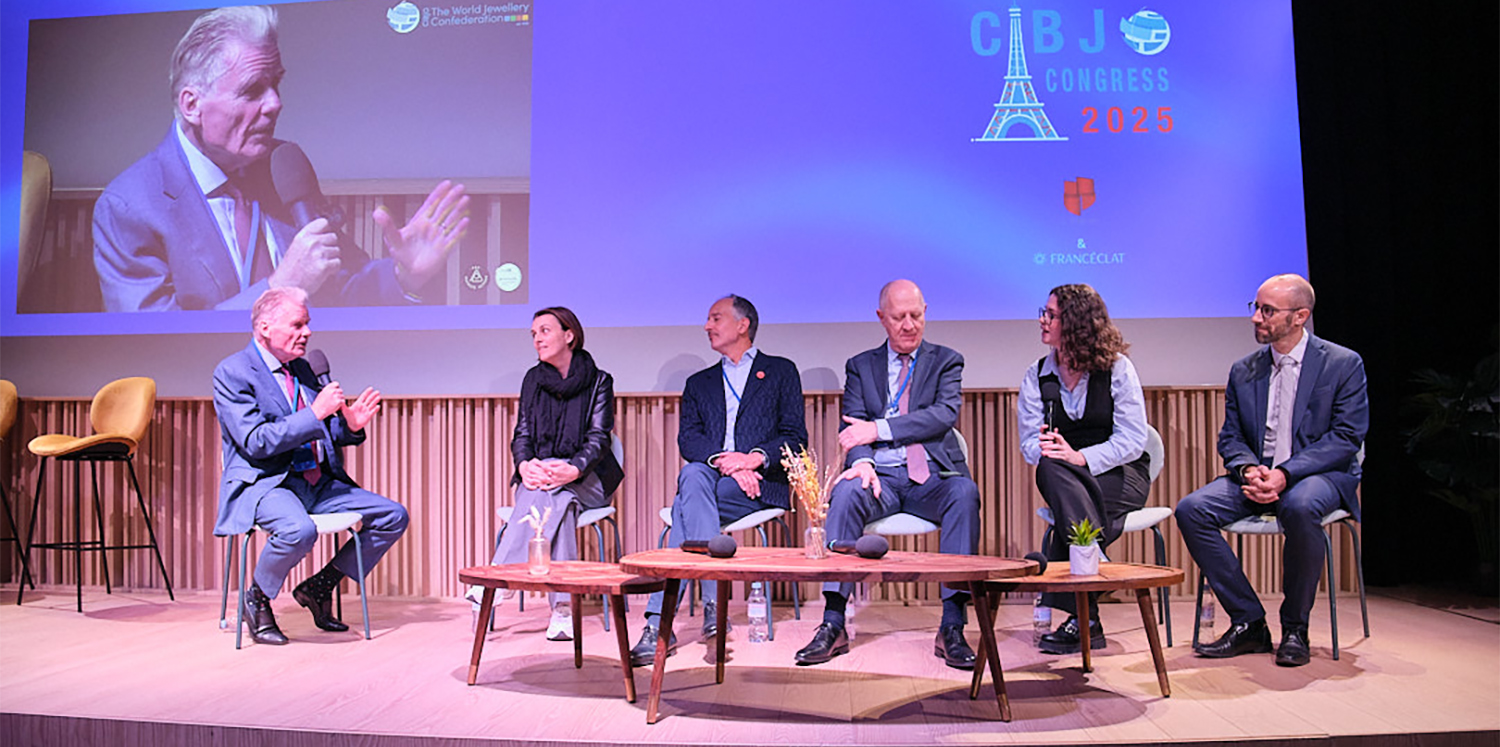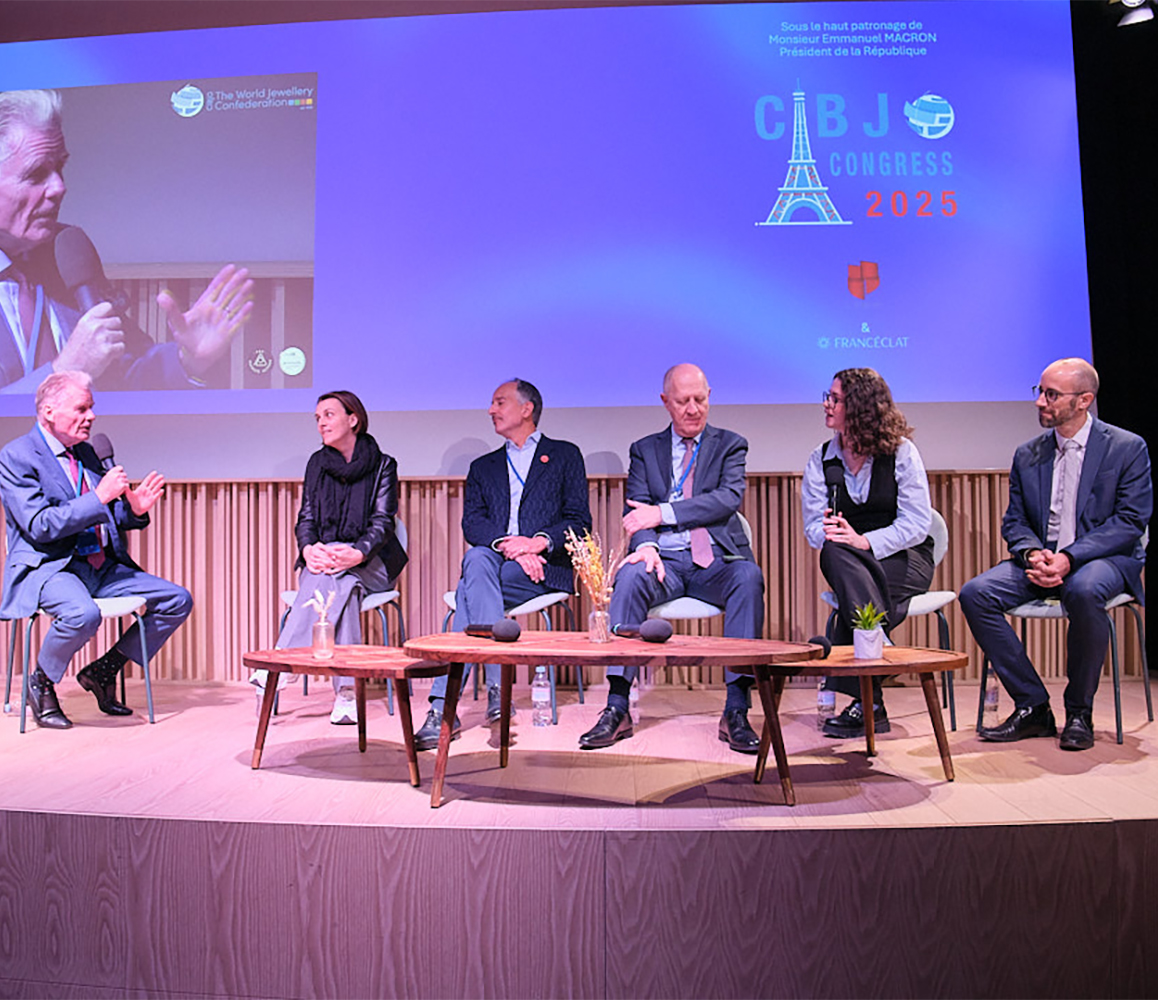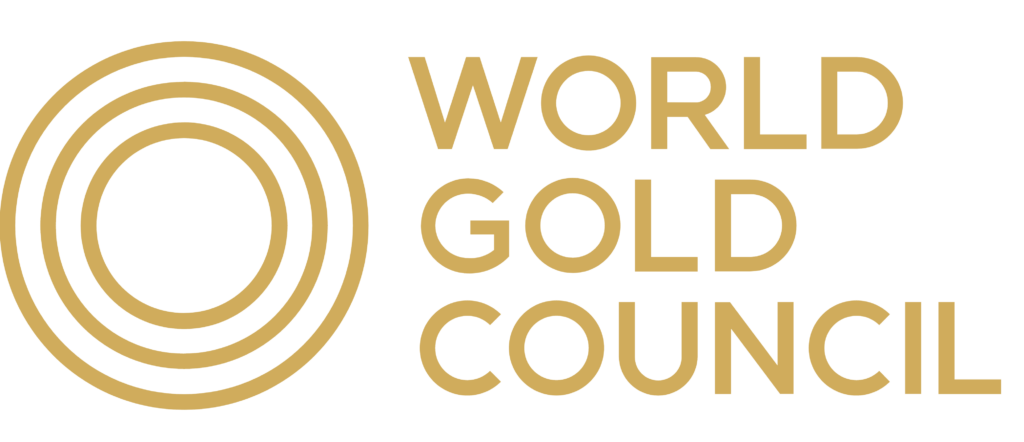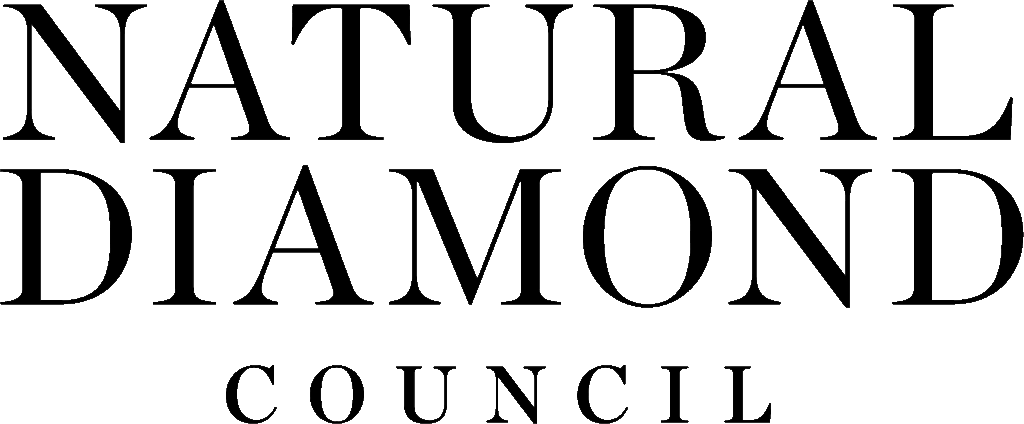Jewellery and gemmology schools need to use all tools
for maximum reach, Congress delegates told
The panel discussing educational opportunities and challenges in the jewellery industry in session (from left): Kenneth Scarratt, Dean of CIBJO Academy, moderator; Alessia Crivelli, Chair of Foundation Mani Inteligenti; Olivier Segura, Director Asia Pacific, L’École des Arts Joailliers; Michel Baldocchi, Director, Haute Ecole de Joaillerie; and Aurélien Delaunay, Director, Laboratoire Français de Gemmologie.
OCTOBER 28 2025
Directors of jewellery and gemmology schools, joining a panel at the 2025 CIBJO Congress, said they need to use all available tools and communications platforms to capture the passion of students for the trade.
“Students can fall in love with our business – developing passion. Our responsibility is to discover the passion of young students and bring it to light,” Aurelien Delaunay, Director, Laboratoire Francais de Gemmologie, told the panel chaired by Kenneth Scarratt, Dean of CIBJO Academy and CIBJO Vice President.
Michel Baldocchi, Director, Haute Ecole de Joaillerie, said technical competence of students needs to be constantly evaluated too.
Olivier Segura, Director Asia Pacific, L’Ecole des Arts Joailliers, presented a video showing the educational activities of branches of L’Ecole des Arts Joailliers located at several centres across the world, including Hong Kong.
Mr Baldocchi referred to a wide variety of new jewellery and gemmology courses that had emerged in France in recent years, offering more choice to students looking to enter the industry.
Italy offers a new Master’s course in gemmology, said Alessia Crivelli, Chair of Foundation Mani Inteligenti in Valenza. Her organisation is also a leading member of a new major initiative, being conducting CIBJO; ConfCommercio, Italy’s largest trade association, which is active in 155 different sectors, including jewelleryand CAPAC – Politecnico del Commercio e del Turismo, a non-profit foundation that has been operating in the professional training. Called the International Fine Jewellery Academy, it will be an educational institute based in Milan, Italy, catering to the requirements of jewellery industry and providing sources to students from around the world.
CAPAC will provide the International Fine Jewellery Academy facilities in the centre of Milan, where in-person training and education will take place. This will be complemented by hands on training delivered by some of the world’s most skilled jewellery artisans, at partner companies in northern Italy.
Gemmologist Rui Galopim de Carvalho, addressing the panel, spoke of the need to use social media increasingly to explain the history and culture of gemmology, and ignite the interest of students.
Iris Van Der Veken, CEO of Geneva-based Watch & Jewellery Initiative 2030, called for a new methodology to be developed to chart new educational programmes across the industry.
Edward Johnson of miner Gemfields, owner of two large coloured gemstone mines, said the origin of gemstones needs to be highlighted more in educational programmes.
In terms of education, Mr Scarratt, responding to a question in the audience from a representative of the Rapaport Group, referred to moves by CIBJO publications to remove the terms “laboratory grown” and “laboratory created” diamonds and use the term “synthetic” exclusively.
“Synthetic is clearly defined in the gem industry,” Mr Scarratt said.
The session concluded with an announcement by Dr. Gaetano Cavalieri, CIBJO President; and Bernadette Pinet, Executive President, UFBJOP, about an intended cooperation between the new International Fine Jewellery Academy in Milan and the Haute Ecole de Joaillerie in Paris.
TIER 2 SPONSORS










